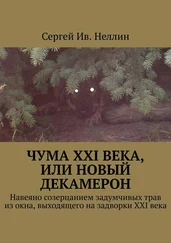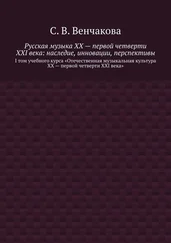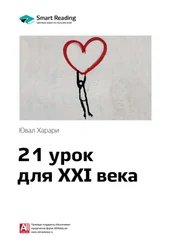В самом деле, когда Россия пыталась повторить крымский успех в других частях Украины, она наталкивалась на значительно более жесткое сопротивление, и война в восточной Украине зашла в тупик. Даже хуже (с российской точки зрения), война разожгла антироссийские настроения в Украине и превратила эту страну из союзника в заклятого врага.
В переводе от «Синдбад» абзац значительно изменен.
Оригинал:
Taken together, Russia’s wars in the Caucasus and Ukraine in the early twenty-first century can hardly be described as very successful. Though they have boosted Russia’s prestige as a great power, they have also increased distrust and animosity towards Russia, and in economic terms they have been a losing enterprise. Tourist resorts in Crimea and decrepit Soviet-era factories in Luhansk and Donetsk hardly balance the price of financing the war, and they certainly do not offset the costs of capital flight and international sanctions. To realise the limitations of the Russian policy, one just needs to compare the immense economic progress of peaceful China in the last twenty years to the economic stagnation of ‘victorious’ Russia during the same period.
В переводе от «Синдбад» текст сокращен и частично изменен.
Оригинал:
The brave talk from Moscow notwithstanding, the Russian elite itself is probably well aware of the real costs and benefits of its military adventures, which is why it has so far been very careful not to escalate them. Russia has been following the playground-bully principle: ‘pick on the weakest kid, and don’t beat him up too much, lest the teacher intervenes’. If Putin had conducted his wars in the spirit of Stalin, Peter the Great or Genghis Khan, then Russian tanks would have long ago made a dash for Tbilisi and Kyiv, if not for Warsaw and Berlin. But Putin is neither Genghis nor Stalin. He seems to know better than anyone else that military power cannot go far in the twenty-first century, and that waging a successful war means waging a limited war. Even in Syria, despite the ruthlessness of Russian aerial bombardments, Putin has been careful to minimise the Russian footprint, to let others do all the serious fighting, and to prevent the war from spilling over into neighbouring countries.
Indeed, from Russia’s perspective, all its supposedly aggressive moves in recent years were not the opening gambits of a new global war, but rather an attempt to shore up exposed defences. Russians can justifiably point out that after their peaceful retreats in the late 1980s and early 1990s they were treated like a defeated enemy. The USA and NATO took advantage of Russian weakness, and despite promises to the contrary, expanded NATO to eastern Europe and even to some former Soviet republics. The West went on to ignore Russian interests in the Middle East, invaded Serbia and Iraq on doubtful pretexts, and generally made it very clear to Russia that it can count only on its own military power to protect its sphere of influence from Western incursions. From this perspective, recent Russian military moves can be blamed on Bill Clinton and George W. Bush as much as on Vladimir Putin.
Далее в переводе от «Синдбад» пропущен абзац:
Even more importantly, Putin’s Russia lacks a universal ideology. During the Cold War the USSR relied on the global appeal of communism as much as on the global reach of the Red Army. Putinism, in contrast, has little to offer Cubans, Vietnamese or French intellectuals. Authoritarian nationalism may indeed be spreading in the world, but by its very nature it is not conducive to the establishment of cohesive international blocs. Whereas Polish communism and Russian communism were both committed, at least in theory, to the universal interests of an international working class, Polish nationalism and Russian nationalism are by definition committed to opposing interests. As Putin’s rise sparks an upsurge of Polish nationalism, this will only make Poland more anti-Russian than before.
Абзац отсутствует в оригинале. От всего вступительного подраздела из семи абзацев остался только второй абзац (также измененный).
Оригинал:
We are repeatedly told these days that we are living in a new and frightening era of ‘post-truth’, and that lies and fictions are all around us. Examples are not hard to come by. Thus in late February 2014 Russian special units bearing no army insignia invaded Ukraine and occupied key installations in Crimea. The Russian government and President Putin in person repeatedly denied that these were Russian troops, and described them as spontaneous ‘self-defence groups’ that may have acquired Russian-looking equipment from local shops. As they voiced this rather preposterous claim, Putin and his aides knew perfectly well that they were lying.
Russian nationalists can excuse this lie by arguing that it served a higher truth. Russia was engaged in a just war, and if it is OK to kill for a just cause, surely it is also OK to lie? The higher cause that allegedly justified the invasion of Ukraine was the preservation of the sacred Russian nation. According to Russian national myths, Russia is a sacred entity that has endured for a thousand years despite repeated attempts by vicious enemies to invade and dismember it. Following the Mongols, the Poles, the Swedes, Napoleon’s Grande Armée and Hitler’s Wehrmacht, in the 1990s it was NATO, the USA and the EU that attempted to destroy Russia by detaching parts of its body and forming them into ‘fake countries’ such as Ukraine. For many Russian nationalists, the idea that Ukraine is a separate nation from Russia constitutes a far bigger lie than anything uttered by President Putin during his holy mission to reintegrate the Russian nation.
Ukrainian citizens, outside observers and professional historians may well be outraged by this explanation, and regard it as a kind of ‘atom-bomb lie’ in the Russian arsenal of deception. To claim that Ukraine does not exist as a nation and as an independent country disregards a long list of historical facts – for example, that during the thousand years of supposed Russian unity, Kyiv and Moscow were part of the same country for only about 300 years. It also violates numerous international laws and treaties that Russia has previously accepted and that have safeguarded the sovereignty and borders of independent Ukraine. Most importantly, it ignores what millions of Ukrainians think about themselves. Don’t they have a say about who they are?
Ukrainian nationalists would certainly agree with Russian nationalists that there are some fake countries around. But Ukraine isn’t one of them. Rather, these fake countries are the ‘Luhansk People’s Republic’ and the ‘Donetsk People’s Republic’ that Russia has set up to mask its unprovoked invasion of Ukraine.
Whichever side you support, it seems that we are indeed living in a terrifying era of post-truth, when not just particular military incidents, but entire histories and nations might be faked. But if this is the era of post-truth, when, exactly, was the halcyon age of truth? In the 1980s? The 1950s? The 1930s? And what triggered our transition to the post-truth era – the Internet? Social media? The rise of Putin and Trump?
Читать дальше
![Юваль Ной Харари 21 урок для XXI века [Версия с комментированными отличиями перевода] обложка книги](/books/412481/yuval-noj-harari-21-urok-dlya-xxi-veka-versiya-s-ko-cover.webp)



![Юваль Ной Харари - Sapiens. Краткая история человечества [litres]](/books/34310/yuval-noj-harari-sapiens-kratkaya-istoriya-cheloveche-thumb.webp)







